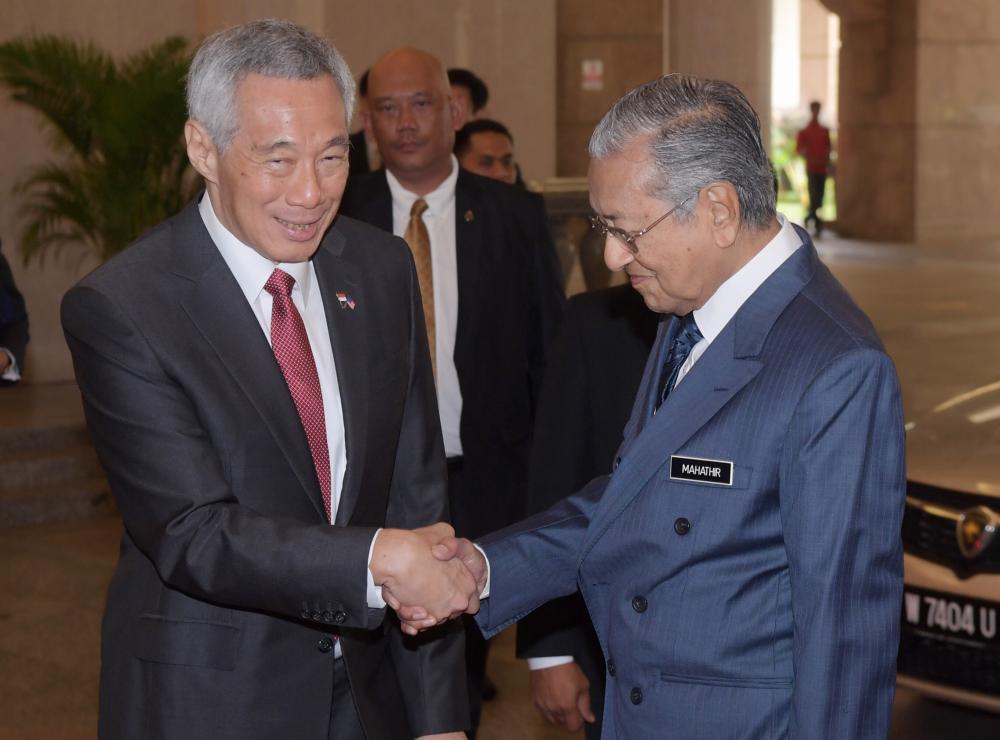PUTRAJAYA: Malaysia and Singapore discussed in detail their unresolved bilateral issues in a friendly and constructive manner during the leaders’ retreat here today, and they agreed to work towards amicable solutions, said Malaysian Prime Minister Tun Dr Mahathir Mohamad.
Addressing a press conference jointly with Singapore Prime Minister Lee Hsien Loong after the conclusion of the 9th Malaysia-Singapore Leaders’ Retreat, Dr Mahathir said ties between Malaysia and Singapore have always been good.
“At least, we are always on talking terms. If we have problems, we air our problems, sometimes publicly or privately.
“What we have not done is that we have not confronted each other or even suggested that we should resolve our problems through violent action, like going to war with Singapore,“ said Dr Mahathir.
Stressing that it is not a minor achievement, he said some countries which have problems with their neighbours will solve it through violence or war, with both sides losing.
“The people of Malaysia and Singapore are civilised. We do not believe in violence,” he said.
Dr Mahathir said the discussions at the retreat touched on, among others, issues concerning the maritime boundary, airspace, cross-border railway projects, congestion at the Malaysia-Singapore border and the 1962 Johore River Water Agreement.
“We spoke about Malaysia-Singapore bilateral relations and how to strengthen and improve them,“ he said.
Lee, meanwhile, said Singapore and Malaysia have worked very hard to develop and manage the relationship.
“If you look at it within ASEAN and the global context, in fact, Malaysia and Singapore are very similar countries in terms of heritage, rule of law, the connection we have with one another, and the comfort we have with one another. We even argue who invented some of our foods first.
“Therefore, there is tremendous potential for us to move ahead in a cooperative and mutually beneficial way,” he said.
Asked if the maritime and airspace dispute can have lasting damage on the relations, Lee said it will depend on how it is managed.
“This is a continuing issue because we always have a maritime boundary with each other. If it is managed well, then it can be productive for both countries and the overall relationship can prosper. If it is not managed well, it can cause troubles and poison the overall relations,” he said. — Bernama














